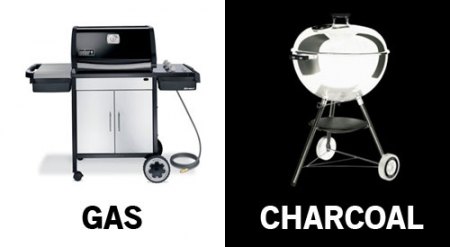
Gas Grill vs. Charcoal Grill: What’s Better?
Grilling is grilling — no matter what fuel source you use.
Both involve the radiant transfer of heat from the fuel source to the food resting on a cooking grid. Drippings come off of the food, land on the heat source and sizzle and smoke. The smoke rising into your food creates barbecue flavor.
So, really, it just depends on what you like.
Gas grills offer more control over temperature and often have options for high-temperature searing and low-temperature, indirect cooking. Many gas grills have small shrouds that shield the burners from incoming drippings to minimize flare-ups and control temperatures.
See? It’s convenient, and it’s quick. But grilling purists swear charcoal’s the only way to grill. The smoky, barbecue flavor created by the drippings sizzling and smoking off the charcoal can’t happen in a gas grill, they say.
And they are more simple in their essence. Charcoal grills lack the mechanical sophistication (i.e. stuff that breaks) of gas grills, such as burners, shields and igniters. They require only charcoal, meaning no mid-party trips to the store for another propane tank.
And, apparently, charcoal grills lend a distinct flavor to their foods — especially meats.